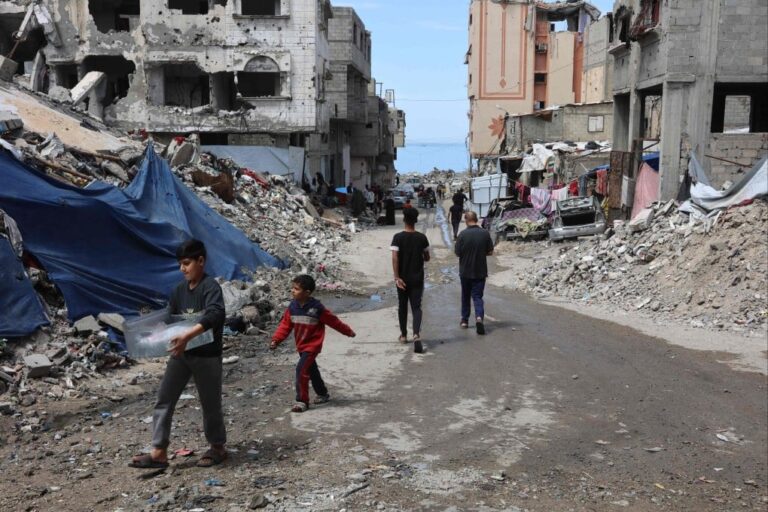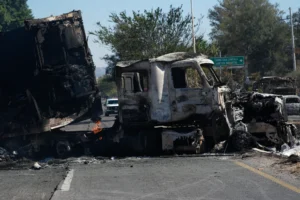Hamas has accepted a ceasefire proposal presented by mediators Egypt and Qatar, senior Hamas official Khalil al-Hayya confirmed Saturday, raising hopes of progress in efforts to end the months-long war in Gaza.
“Two days ago, we received a proposal from the mediators in Egypt and Qatar. We dealt with it positively and accepted it,” said al-Hayya, who leads Hamas’ negotiating team. “We hope the occupation does not undermine it,” he added in a televised statement.
The announcement comes as indirect negotiations continue between Hamas and Israel over a multi-phase agreement to halt hostilities, release hostages, and chart a post-war path forward in the Gaza Strip.
Security sources told Reuters that Egypt had received “positive indications” from Israel about the proposal, which reportedly includes a transitional phase in which Hamas would release five Israeli hostages per week.
Israel’s Prime Minister’s Office said it had completed consultations on the offer and responded with a counterproposal, formulated in full coordination with the United States. However, Israel has not publicly stated whether it accepts the plan in its current form.
The agreement, brokered with help from Egypt, Qatar, and the U.S., is structured in three phases:
- Phase One (began January 19): A temporary truce, partial release of Israeli hostages by Hamas, and Palestinian prisoner releases by Israel.
- Phase Two: The proposed release of the remaining hostages and a gradual withdrawal of Israeli troops from Gaza.
- Phase Three: A roadmap for Gaza’s post-war reconstruction and long-term governance.
Hamas has insisted that guarantees be made to move beyond Phase One and that any agreement must include provisions for Israeli military withdrawal. In contrast, Israel has expressed willingness to extend the initial 42-day pause but remains opposed to Hamas playing a role in Gaza’s future governance.
Responding to Israeli and U.S. calls for Hamas to disarm as part of a long-term resolution, al-Hayya said the group would “not disarm as long as the Israeli occupation exists,” declaring its weapons a non-negotiable issue.
Despite the diplomatic efforts, Israeli airstrikes and ground operations continued across Gaza on Saturday. Palestinian health authorities reported at least 20 fatalities from strikes in various parts of the enclave. The Israeli military said it launched a new ground operation in Rafah’s Jneina neighborhood to expand a buffer zone near the Egyptian border.
Israel resumed its offensive on March 18, claiming the need to increase pressure on Hamas to secure the release of hostages. Tens of thousands of Gazans have since been ordered to evacuate from northern and southern areas.
According to Gaza health authorities, more than 50,000 Palestinians have been killed since the war began. The conflict was triggered on October 7, 2023, when Hamas militants launched a large-scale cross-border attack, killing 1,200 people and taking 251 hostages, according to Israeli government figures.



























